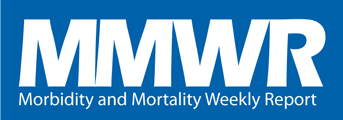MMWR News Synopsis for December 31, 2014
Smoking Cessation Among Users of Telephone and Web-Based Interventions — Four States, 2011–2012
CDC Media Relations
404-639-3286
Tobacco cessation services are available for free in every state. Smokers who use these services better their odds of successfully quitting smoking. Smoking causes 480,000 deaths a year in the United States. All states offer access to telephone or web based tobacco cessation services, and these services are freely available to people who want to quit smoking. Using these services, and in particular, using both services in combination, increases the chances of quitting successfully. States can help a greater number of people quit smoking by offering both telephone and web-based tobacco cessation services instead of offering only one.
Tetrodotoxin Poisoning Outbreak from Imported Dried Puffer Fish — Minneapolis, Minnesota, 2014
Douglas Karas
US Food and Drug Administration
240-402-1923
Douglas.Karas@fda.hhs.gov
Health care providers who work in emergency departments or with persons from countries with a tradition of puffer fish consumption should be aware of the potential public health threat of puffer fish poisoning and should coordinate with their local poison centers and health departments to investigate any suspected cases. Puffer fish is a highly regulated product in the U.S. due to its potential toxicity yet is a delicacy in many cultures. Health care providers who work in emergency departments or with persons from countries with a tradition of puffer fish consumption should be aware of this potential public health threat and coordinate with their local poison centers and health departments to investigate any suspected cases of puffer fish poisoning to determine the source of the fish, whether it was legally imported, and whether additional contaminated product needs to be removed from commerce.
Perceptions of the Risk for Ebola and Health Facility Use Among Pregnant and Lactating Women and Community Health Workers — Kenema District, Sierra Leone, September 2014
CDC Media Relations
404-639-3286
During a complex humanitarian crisis such as the Ebola epidemic in West Africa, it is critical to consider the impact of the crisis on the delivery of routine health services and on health care seeking among vulnerable populations. Fear and misconceptions of Ebola were found to contribute to decreased health facility use in focus group discussions with health workers and pregnant and lactating women in Kenema District, Sierra Leone. In a country with the highest ratio of maternal deaths and fourth highest rate of newborn deaths in the world, use of routine maternal and newborn health care is essential to reduce the risk of adverse health outcomes. Infection prevention and control trainings were found to reduce fear among health care workers and may be an important strategy to increase women’s confidence in health facility safety. This information is being used to create messaging to encourage use of maternal and newborn health care services across Sierra Leone.
Notes from the Field:
Aseptic Meningitis Outbreak Associated with Echovirus 30 Among High School Football Players — Los Angeles County, California, 2014
###

